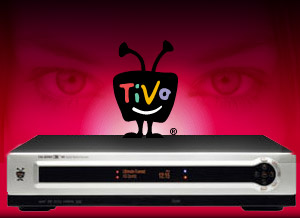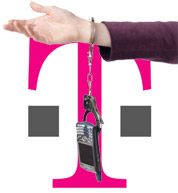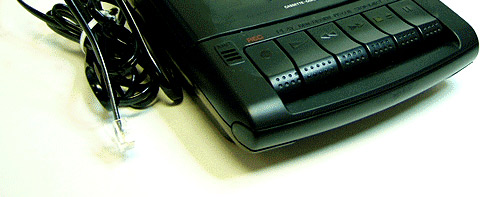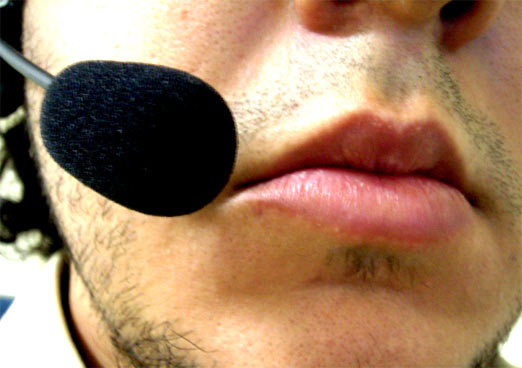A sad day for air travelers:
A federal appeals court has rejected a law requiring airlines to provide food, water, clean toilets and fresh air to passengers trapped in a plane delayed on the ground.
Thanks for visiting Consumerist.com. As of October 2017, Consumerist is no longer producing new content, but feel free to browse through our archives. Here you can find 12 years worth of articles on everything from how to avoid dodgy scams to writing an effective complaint letter. Check out some of our greatest hits below, explore the categories listed on the left-hand side of the page, or head to CR.org for ratings, reviews, and consumer news.
A sad day for air travelers:
A federal appeals court has rejected a law requiring airlines to provide food, water, clean toilets and fresh air to passengers trapped in a plane delayed on the ground.

America lies in slumber as a new swath of rights are violated, our consumer rights. The right to a fair deal. Companies have a right to try to make a profit. We have the right to receive the goods and services we purchase at the price and quality level advertised, and the right to seek redress if these expectations are not met. You earned that money with your sweat, and now you’re just going to let someone take it from you?
Today I successfully objected to an arbitration clause and was still able to get the service. It was for acupuncture. I was filling out all the blah blah forms and then I came across the arbitration agreement. I wasn’t even planning on this, I just saw it and got really uncomfortable.

Taking a big company to small claims court sounds like a big hassle but reader Bill has done it successfully three times. He says the time and effort spent on taking a company to small claims court is far less then how it long it takes to get companies to fix above-average in complexity problems. [More]
../../../..//2008/01/04/new-jersey-rhode-island-and/
New Jersey, Rhode Island and Connecticut are preparing legislation similar to New York State’s airline passenger’s bill of rights. [San Francisco Chronicle via ConsumerWorldBlog]

In the best scenario, you’ll never make it out of the store with a recalled toy—if you manage to find one still on the shelves, retailers (at least the big ones) will likely catch it at check out because the UPC code will have been flagged. But for those times when you do end up with something that has to go back to the Island of (Really) Misfit Toys, here are some things to consider to reduce problems on your end.

As a product, Tivo is easy to love, even root for. As a company, they’re sliding further down that slippery slope of privacy invasion. According to the Wall Street Journal, today Tivo will announce that they’re going to start making detailed demographic customer data available to advertisers. They already sell second-by-second data on viewing patterns, but so far it’s been anonymous; now it will come with information about viewers’ ethnicity, age, income level, etc. As far as we know, they have no corresponding plan to compensate their customers for selling this data. [Update: It turns out Tivo is pulling the demographic data from a group of 20,000 volunteers, and the compensation is the chance to win a free Tivo. (Thanks, Megazone!)]

If you’re flying in Europe, considering printing a copy of this consumer rights document (PDF) and putting it in your wallet. It’s “Regulation (EC) No 261/2004 of the European Parliament and of the Council of 11 February 2004,” but all you need to know is that it stipulates what airlines have to do when flights are canceled, delayed, or they lose your luggage. Like in America, they don’t have to give you jack if the delays are due to weather. Airfarewatchdog Blog has a good breakdown of what the rules mean.

On Wednesday, the California Supreme Court refused to review two earlier findings, which killed T-Mobile’s final chance at blocking a lawsuit against its early-termination fees and practice of locking phones. This is the third time T-Mobile has tried to stop the case from proceeding, and both a state trial judge and a state appeals court have already rejected T-Mobile’s claims that its customers were required by the terms of their contracts to submit to binding arbitration.

A class-action lawsuit was filed on October 5th against the unholy duo of Apple and AT&T, charging that they intentionally broke unlocked headsets via the last firmware update, and conspired illegally to monopolize parts of the mobile phone market by preventing consumers from using any services other than those provided by the two companies. The suit charges the two companies, either jointly or separately, with six formal counts, including “alleged violations of the California Business and Profession’s Code, The Cartwright Act, The Sherman Act, The Federal Trade Commission Act, The Communications Act of 1934, and The Telecommunications Act of 1996, as well as rules and policies established by the FCC.”

Did you know that if something you own is defective and you get it repaired three times for the same problem, you may be entitled to a free replacement under “lemon law?”

In the extremely unlikely event that a customer were sued for recording and publishing a customer service call, we feel that the courts would decide in the consumer’s favor, based on the following case law…

Seattle P-I has a good article about what debt collectors can and can’t do. For instance, they can’t:

If it’s the airline’s fault that your flight is delayed or canceled or you missed your connection, whip out a copy of their Rule 240.

You might be distracted by their pointed horns and forked tail, but don’t forget you have rights when telemarketers call. If those rights are trampled by their cloven feet, you have recourse.
![]()
Part of ![]()
Founded in 2005, Consumerist® is an independent source of consumer news and information published by Consumer Reports.
